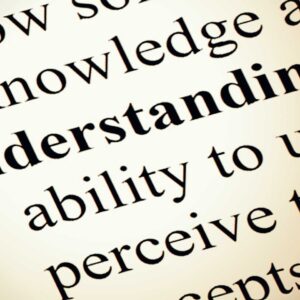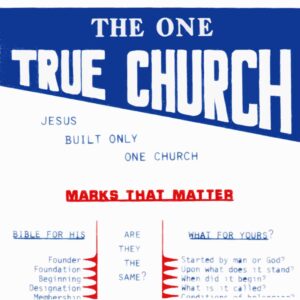(or how do we know what we think we know)
I am by no means a Philosopher, but I think it is crucial to address this topic here. It can get quite complicated, and people have spent lifetimes, written dissertations and countless books on this subject. But basically, what is needed is a reliable method to identify what is likely to be true, and distinguishing this from what is more likely to be false.
The Church teaches that a person can determine the truth by what is experienced as a result of their praying about it. The clearest expression of this idea is contained in the Book of Mormon:
“4 And when ye shall receive these things, I would exhort you that ye would ask God, the Eternal Father, in the name of Christ, if these things are not true; and if ye shall ask with a sincere heart, with real intent, having faith in Christ, he will manifest the truth of it unto you, by the power of the Holy Ghost.
5 And by the power of the Holy Ghost ye may know the truth of all things.”
Moroni 10:4–5
The most obvious question here, which often doesn’t get asked, is how do we know that this method of identifying truth is even valid and/or reliable in the first place? In order for this statement to be ‘true’, the book itself has to be demonstrated to be ‘true’. And how does one establish the book to be true? — By applying the method prescribed in the book. This is a clear-cut example of circular reasoning: “A is true because B is true; B is true because A is true.”
In this way, the basis for this method of identifying truth can be seen to be inherently invalid, even on a theoretical basis.
Further problems are encountered when examining how this method is actually implemented in real-world, practical situations. The idea of praying for an answer from God is by no means exclusive to the LDS Church, nor is there anything unique in the experiences that they have in receiving their answers.
One can review the writings from adherents to essentially all religious traditions, and find descriptions of fervent, deeply felt, inherently profound experiences. Those having them are convinced they are receiving absolute truth directly from God, and that they confirm the truthfulness of their particular religious tradition and understanding, whether they are Mormon, Catholic, Baptist, Quaker, Jewish, Muslim, etc.
I have recently come across a YouTube video containing fervid testimonies expressed by believers from quite a few different religious traditions, which eloquently express what I’m trying to address here:
Members of the LDS Church should pay particular attention to the first person in this video, a member of The True & Living Church of Jesus Christ of Latter-day Saints, a polygamous breakoff from the LDS Church, in Manti, Utah. This testimony is indistinguishable from the testimonies typically heard in Fast & Testimony meetings of the mainstream LDS Church:
“I’ve been searching for a witness of this work, and of this Church…
“I got my witness, and it’s burning within my soul, of how important this work is, and how true it is. I know it is.
“And it’s hard to believe just a year ago I was in High School, and now I’m in a plural marriage, and struggling.
“But I know, without the shadow of a doubt, that this is the Lord’s work, that I’ve finally found it. In the name of Jesus Christ.”
Original Recording in This American Life April 26, 1996.
However profound these experiences feel, whatever their origin or significance, it is thus convincingly demonstrated that they are simply not reliable in determining what is or isn’t true. Another YouTube video I came across recently contains an excellent presentation on this topic: Mormonism: What is the Spirit?
Another useful example involves the various talks, speeches, and books by Paul H. Dunn, a well-known General Authority, and a member of The First Quorum of the Seventy, from 1976 to 1989. His talks drew upon various events in his life, and thousands upon thousands of members testified of how they felt the Spirit testifying to them when hearing or reading his words, strengthening their testimonies of the Church.
It turned out that many of the facts and events he spoke and wrote about were either completely false, or substantially embellished. He eventually acknowledged this publicly, and he was given ‘Emeritus’ status in his Church calling as a result.
My point here is not to criticize or humiliate Bro. Dunn. Clearly, his intentions were good, and there was absolutely no malice involved. No, the point here is that even though people were uplifted by his talks and books, and could feel the ‘Spirit’ testifying to them, this had no connection to whether or not there was any factual truth in what they were hearing and reading.
Similarly, members can ‘feel the Spirit’ while reading the Book of Mormon, but this has absolutely no bearing on whether there is a real, factual basis to the events portrayed in the book.
The lesson here is that this feeling of the ‘Spirit’ is no different from, and no more reliable than, what members rely on as the basis of their Church ‘Testimony’, in their ‘knowing’ that the Church is true. The experiences themselves are real, and can be quite uplifting and inspirational. But they are useless in terms of identifying what is factually true.
As another example, I have experienced the same feelings and emotions that members describe as the basis for their testimonies, when listening to Mozart’s Requiem, seeing a performance of Les Miserables, or watching a movie such as The Natural. Members’ claims that the feelings they experience when reading the Book of Mormon proves to them that the Book is true, are no more justified than my thinking that Roy Hobbs was a real baseball player because I was so moved by the events depicted in the movie.
I invite the reader to do some research on the topics of ‘Elevation,’ or ‘ASMR’, and the history of religious experience in general, to gain insight into the types of experiences common to all human beings. This will provide an important perspective on the nature of what are otherwise termed ‘spiritual experiences’ and their relationship to factual truth.
For a more detailed discussion of this topic, please see the following blogposts I wrote several years ago:
How Do We Know Whether Something is True or False
Science and Reason are the Final and Default Arbiters of Truth
Lastly, I think it is important to briefly discuss “HeartSell ®” in the context of how and why we come to believe something is true or even just desirable. This is a registered trademark for the marketing approach of the Bonneville International Corporation, a media and broadcasting company wholly owned by the LDS Church.
On a page from their website, with the title “Affecting Change by Reaching the Hearts and Minds of Our Audiences” the following quote describes exactly what HeartSell ® is, and how it can be used:
“Our unique strength is the ability to touch the hearts and minds of our audiences, evoking first feeling, then thought and, finally, action. We call this uniquely powerful brand of creative “HeartSell”® — strategic emotional advertising that stimulates response.”
Bonneville International Corporate Website*
This technique can thus be used to ‘sell’ any product, any idea, irrespective of whether or not there is any truth or real value to it. And without doubt, this technique is used extensively in the various Church media productions, educational materials, etc., and accounts for why people feel the ‘spirit’ and are thereby effectively manipulated into drawing the conclusion that the Church is true. Those are strong words, I realize, but I don’t see any more accurate way of describing what is really going on here.
*Note: sometime in early March, 2015, Bonneville International removed all mention of HeartSell from its website; the link above now goes to an archived copy of what that page originally contained. It makes me wonder if this action was taken because of the negative attention and implications the whole concept of “HeartSell” had for the Church.
I have found the following books of enormous help in coming to a better understanding of just how and why we come to believe the things we believe:
Why We Believe What We Believe — Uncovering Our Biological Need for Meaning, Spirituality, and Truth, by Andrew Newberg, MD and Mark Robert Waldman
On Being Certain — Believing You Are Right Even When You’re Not, by Robert A. Burton, MD
Mistakes Were Made (But Not By Me) — Why We Justify Foolish Beliefs, Bad Decisions and Hurtful Acts, by Carol Tavris and Eliot Aronson
How We Believe: Science, Skepticism, and the Search for God, by Michael Shermer
Finally, the following book encourages people to use the same critical thinking skills that they use to see how other religions and religious claims are false, in examining their own beliefs:
The Outsider Test for Faith — How to Know Which Religion is True, by John W. Loftus
Perhaps Mark Twain said it best:
“The easy confidence with which I know another man’s religion is folly teaches me to suspect that my own is also.”



